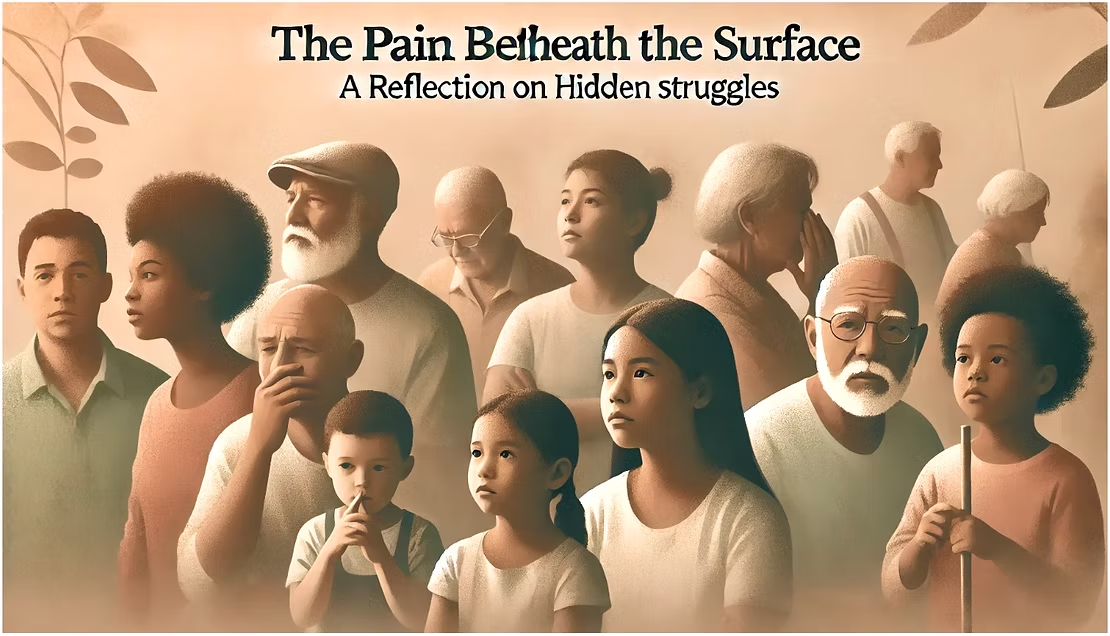Warning: This is a reflection on human hidden struggles and the article may evoke strong emotions. Please feel free to seek appropriate support as listed in the article.
Over the festive season, I took some time to enjoy a couple of classic movies that I hadn’t revisited in years. I found myself watching The Bodyguard and Mrs. Doubtfire—two films with incredible performances by Whitney Houston and Robin Williams, respectively.
Both films illustrate the complexity of relationships, which is my area of interest. But what struck me wasn’t just their talent or the nostalgia of these beloved films about relationships, but the painful reality of their lives. Both Houston and Williams brought immeasurable joy to audiences worldwide, yet both carried hidden pain that eventually led to their untimely deaths.
It was a clear reminder of how many of us walk through life with invisible burdens. We smile, we laugh, and we push through our days, masking the heaviness that weighs on our hearts. Like Whitney and Robin, we often wear a façade, showing the world one version of ourselves while our inner world tells a different story.
This realisation stayed with me long after watching the films and long after the Christmas Turkey, the Jollof Rice and the Spiced Rum have settled and digested. I began to wonder: How many of us made the spirit of Christmas come alive for many but were silently suffering? How many of us are carrying wounds that even our closest friends and family cannot see? And why is it that so many of us feel unable—or unwilling—to reach out for help?
The Culture of Silence
In our society, there’s an unspoken expectation to “keep it together.” Vulnerability is often perceived as weakness, and there’s pressure to present a picture-perfect version of ourselves to the world. Social media amplifies this, bombarding us with carefully curated snapshots of joy, success, and happiness. Against this backdrop, admitting to struggles can feel like a failure, as though we’re the only ones not living up to life’s glossy image and societal expectations.
But the truth is, pain doesn’t discriminate. It doesn’t matter if you’re a world-renowned entertainer or a social worker, a teacher or a therapist or an everyday person going about your daily routine. Pain is universal, yet so many of us choose to endure it in silence.
The Danger of Suffering Alone
The British Psychological Society shared that pain and suffering are fundamental to human being, and when pain is hidden and unaddressed, it grows. It can manifest in various ways—anxiety, depression, substance abuse, or physical illness.
For Whitney Houston and Robin Williams, their pain led them down tragic paths despite their ability to bring so much light to others. Their stories are heartbreaking reminders of the importance of reaching out, even when it feels impossible.
We need to shift the narrative around mental health and emotional well-being. Struggling doesn’t make us weak—it makes us human and let us exercise our rights to be human in this year 2025.
Seeking Help: A Way Forward
A quick Google search revealed numerous self-help and other resources available at our disposal.
If you’re carrying hidden pain, know that you’re not alone, and there are ways to find support.
1. Talk to Someone You Trust
Start with one person—a friend, family member, or colleague. Sharing your feelings can lighten the burden and pave the way for deeper support.
2. Seek Professional Help
Therapists, counsellors, and coaches are trained to help you navigate your emotions and find healthier coping mechanisms. Reaching out to a professional is a brave and proactive step toward healing.
3. Practice Self-Compassion
Be kind to yourself. Recognise that it’s okay not to be okay. You’re allowed to take time to heal and process your emotions without judgment.
4. Join a Support Group
Sometimes, connecting with others who have experienced similar struggles can be incredibly validating and healing. Knowing you’re not alone can make all the difference. This is one of the greatest ways parents that are struggling find help.
5. Engage in Activities That Bring Joy
Even in the midst of pain, moments of joy can be found. Whether it’s a hobby, exercise, or simply spending time in nature, these activities can offer a let-off and remind you of the beauty in life.
Encouragement to Speak Up
If you suspect someone close to you is struggling, let them know you’re there for them. A simple “How are you really doing?” can open the door for a deeper conversation. Sometimes, just knowing someone cares can be the lifeline they need.
And if you’re the one in pain, I urge you not to suffer in silence. You are not alone.
The world needs you—not just the version of you that smiles and makes everything seem okay, but the real you, with all your complexities, struggles, and strengths.
As I reflect on the lives of Whitney Houston and Robin Williams, I’m reminded that while they gave so much joy to the world, their stories also carry an important lesson:
We all need connection, understanding, and support. Let’s honour their legacy by committing to being more open, more compassionate, and more courageous—both for ourselves and for each other.
Let’s not wait until it’s too late to ask for help or offer it. Because no one deserves to walk alone in their pain.
In this New Year, let’s show more compassion towards ourselves by prioritising our overall well-being.
Welcome to 2025.
By: Chris Kolade
Principal Consultant
United-In-Separation®
https://www.unitedinseparation.com



